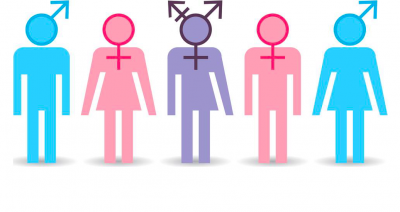Written by Rory Cooper (3rd place)
What is the most important lesson for political leaders to learn from the COVID-19 pandemic?
Originating in the Wuhan province in China, COVID-19 has taken a heavy toll on nations around the world, resulting in millions of people under lock down. This has had extremely negative impacts upon multiple aspects of our society, economy and healthcare systems. However, there are lessons that can be learnt by political leaders from the COVID-19 pandemic regarding the way we structure our economy, the value of speed in tackling viruses, importance of trust in government and how vital international cooperation is.
Some would argue that the most important lesson that can be learnt from COVID 19 is that governments must be quick to put in place policies of containment and mitigation. It was estimated that had China acted 3 weeks earlier, 95% of cases could have been cut. This shows how crucial speed is when dealing with a pandemic and most of all the even greater dangers that inaction pose. Mitigation strategies such as the full lock down of a city and nation has proved increasingly effective in reducing infection and flattening the Sigmoid curve’, the name given to curves that represent viruses such as coronavirus who’s infection begins slowly but increases exponentially over time. The nature of the Sigmoid curve further demonstrates how acting quickly is in many cases the best thing leaders can do as containment and mitigation policies implemented early on can flatten the curve before it grows in exponentiality. For example, in 2003 the SARS outbreak in China was effectively dealt with by the government there the fast and strong containment measures implemented early on through non-medical, public health measures such as lock downs and mandatory face masks in public
There are those that would argue otherwise claiming that a more important lesson can be learnt through the value that government trust has been to country’s that enjoy it, and also the negative impacts that nations that do not benefit from this experience. Swedish historian Lars Tragardh argues the importance of government trust during a pandemic and how in places where there is low government trust, such as the US and Southern Europe, there is a lot of disobedience to lockdown and social distancing restrictions. As a result, countries like the US are facing larger problems brought on by coronavirus with the highest death toll in the world currently at around 211 thousand people. We can also observe that to maintain government trust through crises such as these, political leaders should make clear, concise decisions and to stand by their policy decisions without backtracking. It should be noted, that as the advice on COVID-19 from the British government became increasingly convoluted and confusing, Britain saw more and more disobedience and disregard for lockdown restrictions. This suggests that when political leaders give clear instructions on what restrictions are in place, and what are not such as in Spain and Italy, the country does not only effectively tackle the pandemic it maintains a trust in government that nations like the US and UK have not enjoyed nearly as much.
Another lesson that could be learned as political leaders from the pandemic could be the benefits of having an economy that is willing to adapt to better suit our lifestyle and industry. Currently, the modern world very much has a ‘disposable’ economy where we consume products, throw them away and replace them. This has been shown as a weakness during the COVID-19 pandemic as it relies heavily on international trade, something which has taken a plunge as a result of coronavirus as the World Health Organisation estimates a contraction of international trade between 13%-32%. This calls for a more self-sustaining economy and many would argue that a circular economy is the way forward. A circular economy would involve a change in how we package products, making packaging biodegradable to help with compost which in turn grows locally produced food. We would need to rethink ownership when it comes to technology. Instead of using and replacing appliances like mobile phones and washing machines, we can license these type of products from manufacturers and when we are finished with them, we can send them back to the manufacturer and they can be reused thus creating a circular economy. The place for this in society is a valuable lesson that political leaders can learn as we must move towards a self-sustaining economy if we are to better deal with the strains of a pandemic again.
Finally, it could be said that the most important lesson that can be learnt from the global pandemic is the importance of international cooperation. COVID-19 has proved to be a global problem and it requires global solutions. Had we pooled protective gear and medicine as an international community, we would have been much better equipped to deal with this virus. There were signs of international cooperation between countries, and the value of international institutions such as the EU was shown through ‘Team Europe’ which sought to take ‘comprehensive and decisive action’ against COVID-19. Its assistance of poorer regions ranged from humanitarian responses (protective gear, food, water) to economic support by via direct-budget support to enable governments to purchase the means to better prepare their healthcare systems for the weight of extra patients. Whilst beneficial, this was widely seen as ‘too little, too late’ and political leaders should take note of the importance and value that having pre-set regulations and procedures concerning pandemics. Although there were some regulations in place following 2007, they were widely ignored when outbreaks occurred throughout Europe.
To conclude, I would argue that the most important lesson that political leaders can learn is the place for a self-sustaining, circular economy after the COVID-19 pandemic has passed as it can enable us to better prepare and deal with the strains on international trade that pandemics can have. Although it should be noted how vital it is that governments are quick to implement policies to flatten infection rate curves.
Bibliography
Pearson, M. (2020). OECD. [online] read.oecd-ilibrary.org. Available at: https://read.oecd-ilibrary.org/view/?ref=124_124999-yt5ggxirhc&title=Flattening_the_COVID-19_peak-Containment_and_mitigation_policies&fbclid=IwAR0pRKJM_SrGD4wUANVIjoRKv4Mzo5Ru7HyO_-VDnukz4YM6Ic4bYq70-6Y [Accessed 1 Oct. 2020].
Safi, M. (2020). 10 key lessons for the future to be learned from fighting Covid-19. The Guardian. [online] 1 May. Available at: https://www.theguardian.com/world/2020/may/01/10-key-lessons-for-future-learned-fighting-covid-19-coronavirus-society.
www.worldometers.info. (2020). United States Coronavirus: 1,832 Cases and 41 Deaths – Worldometer. [online] Available at: https://www.worldometers.info/coronavirus/country/us/.
Wijayasundara, M. (2020). Opportunities for a circular economy post COVID-19. [online] World Economic Forum. Available at: https://www.weforum.org/agenda/2020/06/opportunities-circular-economy-post-covid-19/?fbclid=IwAR1TVqX2SfFBfJZPr2_VKvGvdGQfkcq5tYO8pt4rk9LL6Z-R8sbumGtx-OM [Accessed 1 Oct. 2020].
www.wto.org. (2020). Trade set to plunge as COVID-19 pandemic upends global economy. [online] Available at: https://www.wto.org/english/news_e/pres20_e/pr855_e.htm.
Suttie, J. (2020). How Does COVID-19 Affect Trust in Government? [online] Greater Good. Available at: https://greatergood.berkeley.edu/article/item/how_does_covid_19_affect_trust_in_government [Accessed 1 Oct. 2020]
Image from: https://www.asbmb.org/asbmb-today/opinions/032320/science-communication-in-action-covid-19-edition







